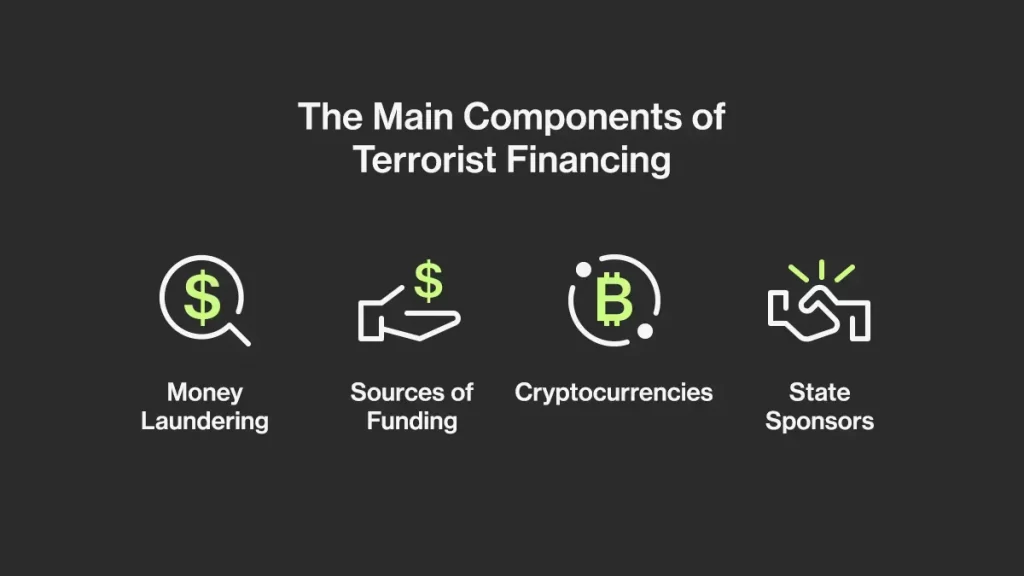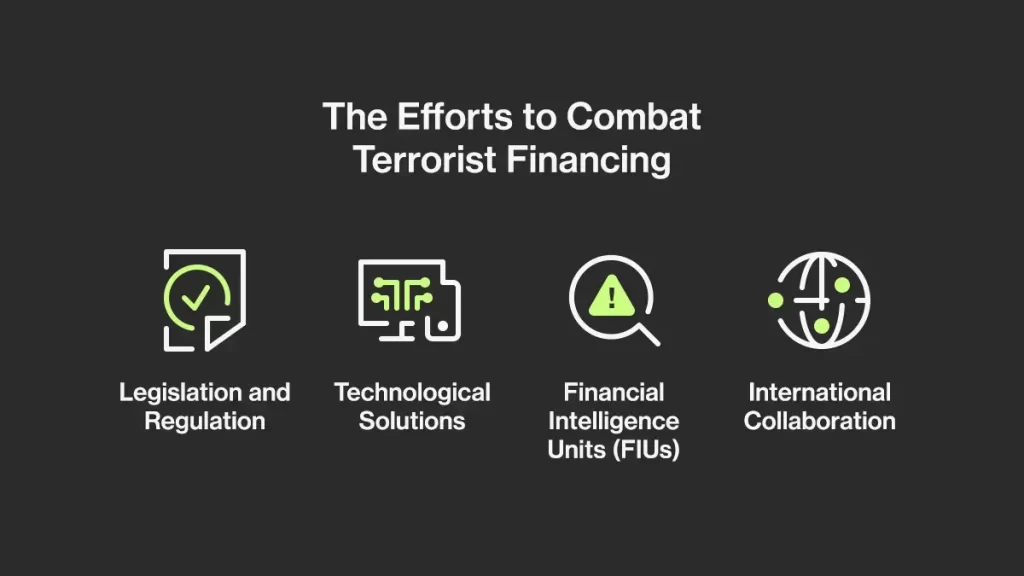In the complex tapestry of global security, one of the most intricate and challenging threads to untangle is that of terrorist financing. The sinister networks that fund acts of terror operate in the shadows, utilising various channels to move money undetected. Understanding the dynamics of terrorist financing is crucial for developing effective strategies to dismantle these networks.
What is Terrorist Financing?
Terrorist financing refers to the process of providing financial support to terrorist organisations or individuals with the intent to facilitate acts of terrorism. Unlike traditional criminal activities that seek personal gain, terrorist financing is specifically directed towards funding acts of violence and terror.
What are the Main Components of Terrorist Financing?

Money Laundering
To conceal the illicit origin of funds, terrorists often engage in money laundering techniques. This involves making the funds appear legitimate by passing them through a complex sequence of banking transfers or commercial transactions.
Solution: Anti-Money Laundering software implementation.
Sources of Funding
Terrorist organisations secure funds through various means, including donations from sympathisers, state sponsorship, criminal activities (such as drug trafficking, smuggling, and extortion), and fraudulent fundraising through charities or businesses.
Solution: Transaction monitoring tools.
Cryptocurrencies
To avoid the strict regulations applied to the current financial systems, terrorists have explored the use of cryptocurrencies to move funds discreetly. Cryptocurrencies provide an additional layer of anonymity, making it difficult for traditional financial institutions to track transactions.
Solution: Comprehensive Identity Verification solutions implemented by cryptocurrency providers.
State Sponsors
Some terrorist groups receive financial support from state sponsors that share their ideological or political objectives. These state sponsors may provide funds, weapons, training, or other resources to further the terrorist group’s goals.
Solution: Customer Due Diligence (CDD) measures for Politically Exposed Persons (PEPs).
Legitimate and Illegitimate Fund Sources in Terrorism Financing
Legitimate Sources
In order to appear legitimate, terrorist groups often operate legal businesses to gather their funds. This often includes farms, trading companies, and furniture manufacturing. Even professional service-oriented businesses may be fronts for terrorist organisations, from investment companies to corporate audit firms.
Illegitimate Sources
As for illegitimate sources, terror groups often rely on transnational crime or the drug trade where, according to estimations, 80% of all drugs in Europe are linked to terrorist groups. In addition to this, the smuggling of gems and precious metals is often an easy choice for terrorist groups due to their high value and how hard they are to track.
The Efforts to Combat Terrorist Financing

As a response to 9/11, the USA government introduced the Patriot Act, which outlined new regulations for combating terrorism financing. This included anti-money laundering rules, increasing reporting requirements for financial institutions.
Since then, governments and international organisations have made active steps to combat terrorism financing and money laundering through various measures, including:
Legislation and Regulation
Countries enact laws and regulations to criminalise terrorist financing and implement measures to prevent, detect, and prosecute individuals involved in funding terrorism. This includes AML compliance, enhanced due diligence measures, AML screening and monitoring.
Technological Solutions
The use of advanced technologies is explored to enhance the monitoring and tracking of financial transactions associated with terrorist activities. Services like Ondato help companies stay compliant with AML regulations through various tools, ensuring proactive measures are taken against terrorist financing and other financial crime.
Financial Intelligence Units (FIUs)
Establishing FIUs to collect, analyse, and disseminate financial intelligence helps identify and track suspicious transactions related to terrorist financing.
International Collaboration
Initiatives like the Financial Action Task Force (FATF) promote international cooperation to develop and implement standards for combating money laundering and terrorist financing. For example, three times a year FAFT releases grey and black lists, which calls for countries with insufficient (Counter-Terrorism Financing) CTF measures to act.
The FATF also asks all countries to implement the following CTF efforts:
- Criminalising the financing of terrorism, founded on the Terrorist Financing Convention. This not only encompasses the funding of specific terrorist actions but also extends to the support of terrorist groups and individual terrorists, even when not directly tied to a particular terrorist act or acts.
- Establishing specific financial sanctions regimes to adhere to United Nations Security Council resolutions aimed at preventing and suppressing terrorism and terrorist financing.
- Reaching out to the private sector to ensure the availability of information to detect and prevent the financing of terrorism easier.



